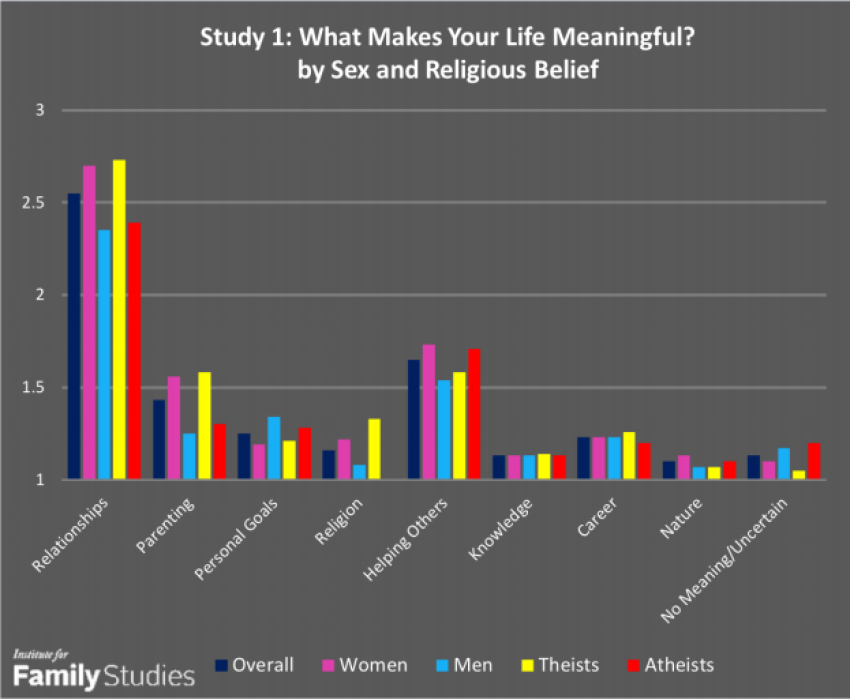Most Americans Find More Meaning in Relationships Than in Religion, Study Finds

Most Americans, including those who believe in God, say their main source of meaning in life comes from their relationships with others such as family and friends instead of religion, according to a new study released by the Institute for Family Studies.
In "Meaning in Modern America," psychology professor Clay Routledge details findings from two surveys he conducted to explore how Americans think about and experience meaning in postmodern culture.
"American culture is changing in a number of ways that have potentially powerful implications for people's efforts to find and maintain meaning in life. Americans are waiting longer to get married and have children, and are having fewer children. Feelings of social disconnection and loneliness are on the rise, even as people are increasingly 'connected' via social media," Routledge notes in the study.

"Americans are decreasingly religious both in terms of personal faith and involvement in religious organizations (e.g., church attendance). Considering the changing landscape of American culture, I wanted to explore people's current views on what gives their lives meaning and how these views may be similar and distinct as a function of factors relevant to both social and religious life," he explains on what prompted the research.
In the first survey of approximately 400 participants, social relationships stood out as the most prominently mentioned source of meaning in life for all participants.
"This is not surprising as social bonds are critical for survival and have a major influence on physical and psychological health. Consistent with surveys showing major declines in Americans' religiosity, religion did not emerge as a prominent theme," Routledge says.
"Since many studies have linked religious faith to meaning and traditional religion is in decline in the United States, we wanted to specifically focus on similarities and differences between theists and atheists. On many of the themes, we observed no significant differences between these groups."
Among the differences noted between those who believe in God and participants who don't, theists were found to focus significantly more on relationships, parenting, and religion, than atheists.
"Atheists were more inclined to describe life as having no meaning or feeling uncertain about life's meaning. We also observed a number of statistically significant sex differences. Women focused significantly more on relationships, parenting, religion, helping others, and nature than males. Males focused significantly more on personal goals/self-improvement than women," Routledge notes.
A second survey conducted as a part of the study looked at how different people find meaning. It found that those who are married or are parents tend to have an advantage in seeing their lives as meaningful than those who are childless and single.
While religious faith did not emerge as a dominant theme in the survey, "people of faith are more heavily invested in the family relationships that are most strongly associated with meaning."
"This suggests that though it is declining according to many metrics, religion or some psychological or social component, it continues to play an important role in meaning-making. For instance, in a recent series of studies, my colleagues and I found that the need for meaning is a unique predictor of belief in God and religious commitment and that religious involvement is associated with greater perceptions of meaning," Routledge explains.
"In other studies, we also found that those who do not identify as religious tend to be more attracted to fringe beliefs such as belief in intelligent extraterrestrial beings when searching for meaning in life," he notes.



























